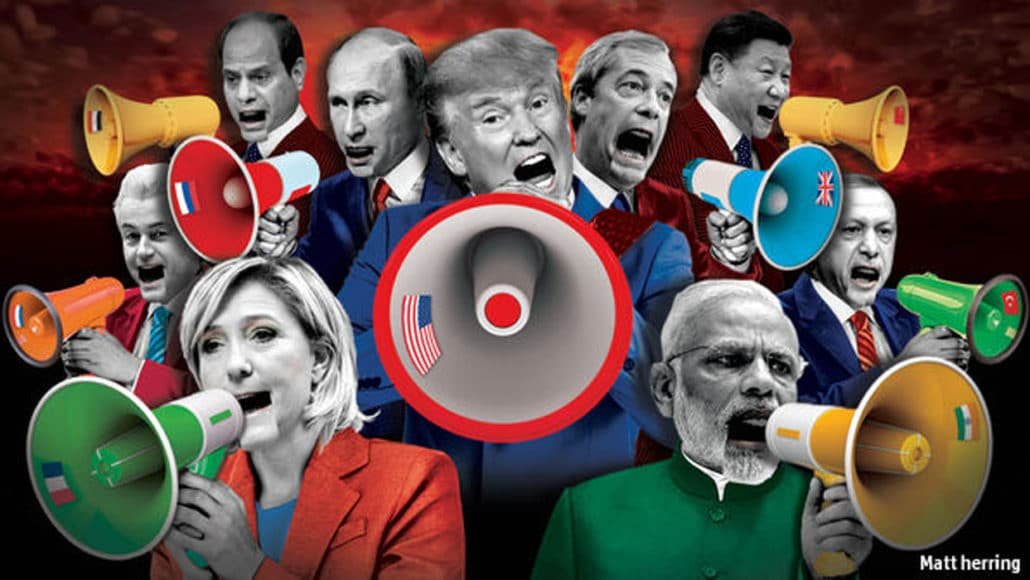There’s a man opposite me on the Northern line at 5.03pm on a Wednesday.
There’s nothing unusual about that in the general frame of things, but he’s looking around, hesitantly, clasping a white sports bag closely to him while he mutters something under his breath. I feel my heartbeat go up, my mouth going dry. Is this it? Am I going to die? My irrational mind races as he looks around wildly, sensing the panic in the carriage.
Of course, it’s just a man with a bag. Not a terrorist, not the man who murdered me and 12 other people, not some crazy radicalised extremist. A man with a white sports bag.

He gets off and runs erratically. I see the same terror I experienced on the faces of people around him. This is a story any number of Londoners could tell you in a post 7/7 world. Irrationality and terror plagues most of us in the face of even the most unlikely attacks.
In Brussels too, I felt myself subconsciously standing closer to armed soldiers on the metro. It’s ridiculous: I’m more likely to be killed by a toaster than I am to be a victim of a terrorist attack. So why am I so scared?
Terrorism is all around us. It’s in the news, on social media, even in our films and books. It’s exotic, dystopian, horrific, powerful.

Young, disaffected Muslim men, I remember discussing with Faisal Al Mutar and Haydar Zaki, can sometimes find the power and identity within jihadi militancy that they can’t find in their often insular, otherised and poorly integrated communities. In a world where poor education and division can’t get you too far, it’s often attractive to reject the UK system entirely when completely disaffected and angry. That is not to excuse radicalism, I should say, rather attempt to understand it.

The only way we can really counter this is by tearing down the insularity of these at-risk communities and reasserting pathways away from militant jihadism. The risk of young Muslim men becoming radicalised when employed and integrated is largely considered to be much smaller than their sidelined and marginalised brothers. Quintan Wiktorowicz noted extensively that there are serious contextual factors to consider in the making of a militant jihadist in his research, and it is unwise to understand it purely through the lens of ideological fundamentalism within Islam (let’s not forget that the vast majority of Salafists do not believe that militant attacks on civilians is an acceptable form of jihad). In regards to this, it makes sense to embrace Muslim communities into the ‘British’ identity and allow discourse on Islam and Islamic identity to be open, rather than criminalise, raise fear barriers between and enforce surveillance on a whole diaspora of the faith.
Of course, that’s not what has actually happened. The majority of voters in the UK and western Europe are white, middle age and lower middle class. They live in fear of terrorism and by a flimsy conjecture about Muslims, and they want a clear answer to stop the fear they face. Embracing discourse and Muslims further into the heart of the British community is the last thing they want to see.
They want solid, and let’s be honest, vengeful policies that they see as blanketing all possibility of an attack. So the politicians implemented the scheme that wouldn’t actually work in conjunction with the data, but the one that attracted the support and relief of the electorate. I’ll hand it to them, I wouldn’t want to be the one telling Mr and Mrs Tory-Green from Chatham that I was raising funding in integration programmes and support networks for disadvantaged young Muslim men, however much I believed in the results.
And that’s where the really nasty politicians slide out of the woodwork. They, in normal circumstances, are laughed at as absurd, unpleasant and opportunistic. They function on the extremes of our society, useful only in a ridiculous scenario where, god forbid, we would need militancy, separatism and supremacy to survive. Usually, we don’t. Nick Griffin was laughed off in the 2009 elections, as we did with the far right in Poland, the US and France in 2008 and 2012.
Now, with twenty years of Islamist terrorism behind us, and no obvious end to it, people are beginning to get restless. There is anger at every new attack, and an increased sense of fear. The never ending tide of new young jihadists doesn’t seem to stop and there is a consciousness of this that pervades every aspect of British society. Immigration. Radicalism. Legal internalism. Terrorist attacks. Misogyny. All of these have become euphemisms for fear, of even hatred of Muslims. They are the others, the monsters, the enemy, to an increasingly hysterical and irrational public.

With the mainstream politicians unable to provide a fair response to this public panic, the electorate turns to the unfair ones offered by the extremes. UKIP support has surged. So has The National Front and the ironically named ‘Party for Freedom’ in the Netherlands. Even Trump, the impossible candidate for an impossible election, stands tall with more power than we could have ever feared. Fear is powerful and they are able to latch onto a whole demographic who previously would have laughed at them.
But we need to be careful. These machiavellian leaders don’t care about you, your fears or your safety. Listen to them carefully; their rhetoric is full of nationalism, militancy and fear. It’s not about you. It’s about them, it’s about their power, their ego, their ambitions. Just as they don’t care about how morally uncomfortable mass bans, segregation and supremacy are, they won’t care about you when push comes to shove.
Watch your fear: it’s easier to make irrational decisions when frightened.
And the far right knows that.








Article Discussion